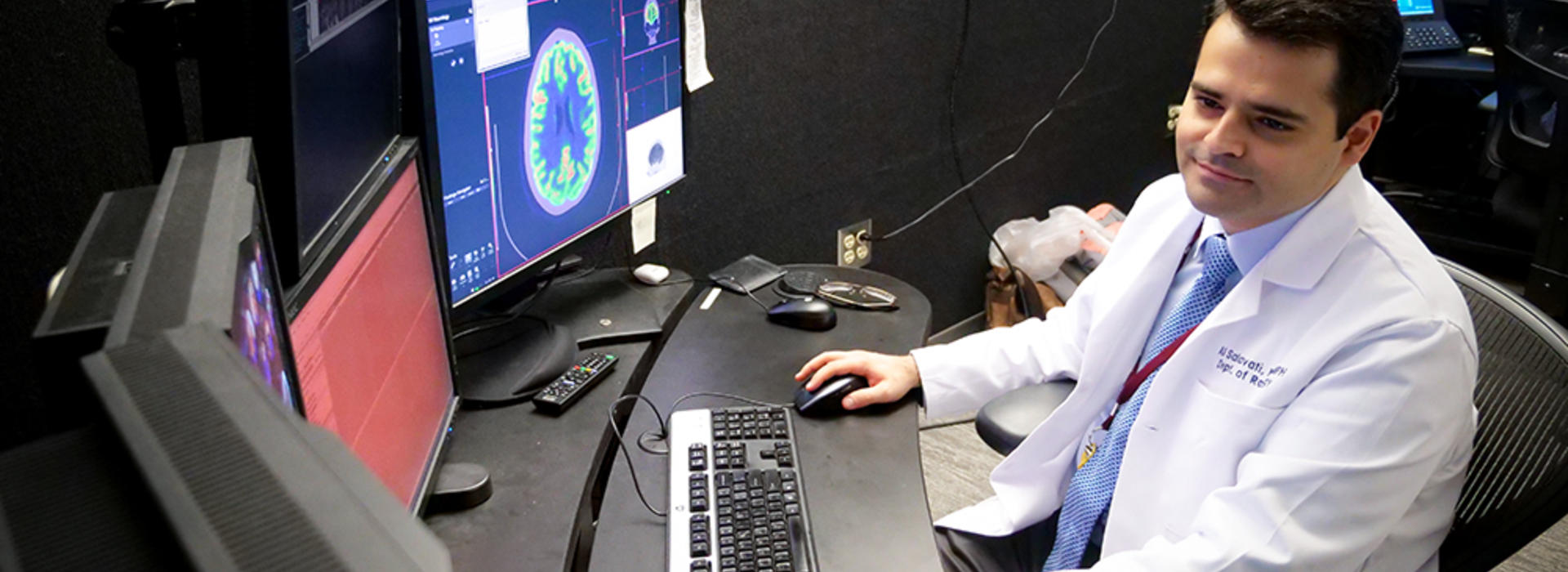
Radiology Resident Receives 2020 Marc Tetalman Award
University of Minnesota Medical School Department of Radiology resident, Ali Salavati, MD, MPH, was selected for the biannual 2020 Marc Tetalman, MD, Memorial Award, which is funded by the Education and Research Foundation for the Society of Nuclear Medicine and Molecular Imaging. This award honors the research accomplishments of a young investigator who is pursuing a career in nuclear medicine and consists of a plaque and $5,000 to assist with their research.
“Although the joy of discovery is the best reward for any researcher, recognition by a well-respected scientific society is an attestation for young investigators, like me, that they are on the right path and hopefully will make contributions to their field,” Dr. Salavati said. “I am truly grateful and honored to be recognized by the Society of Nuclear Medicine and Molecular Imaging.”
Dr. Salavati began his residency at the Medical School in 2016 and has been highly involved in the field of nuclear medicine and molecular imaging. His hard work has resulted in over 60 publications in peer-reviewed journals, 50 abstracts and four books.
During the past few years, nuclear medicine and molecular imaging has begun playing a more significant role in the diagnosis and treatment of patients with prostate cancer. Dr. Salavati recognized how prostate cancer is the second-leading cause of cancer death in men, and his current research involves working to improve the accuracy of detection of recurrent prostate cancer by using new targeted imaging agents.
“I was very fortunate to have a great mentor, Dr. Jerry Froelich, during my residency. Without his support, I was not able to continue my research and receive an RSNA Research Grant. I also want to thank our chairman, Dr. Charles Dietz, and our program directors, Dr. Tara Holm and Dr. Jessica Kuehn-Hajder, for their support during my residency,” Dr. Salavati said.
Dr. Salavati will continue his training as a clinical fellow at John Hopkins University, where he will use the award to initiate a pilot study that will investigate the application of a new targeted radionuclide therapy (TRT) agent—a treatment that is used to target cancer cells more efficiently.
“I want to continue my career as an academic radiologist, specifically to help train others and be part of the next generation of radiologists who will introduce innovative imaging and therapeutic discoveries,” Dr. Salavati said.